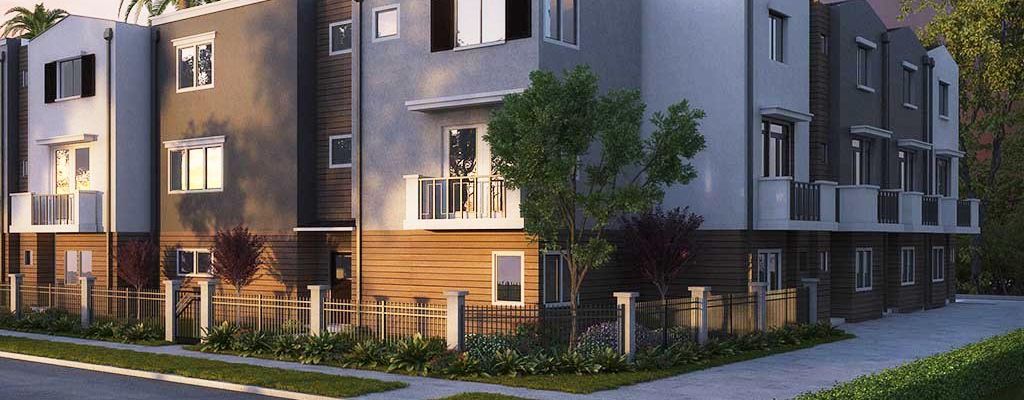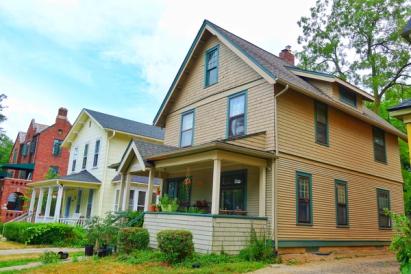What Is A Condo Questionnaire and Do I Need One?
Written by:
Andrew Tavin
Andrew Tavin
Personal Finance Writer
Andrew Tavin a contributing writer for Own Up.
See full bio
Fact Checked by:
Mike Tassone
Mike is a Co-Founder and Chief Operating Officer of Own Up. He has expertise in all areas of residential lending, having led operations for a top 40 lender in the United States.
See full bio

Fast Links
- What is a Condo Questionnaire?
- What Is a Homeowners Association?
- How Does an HOA Operate?
- What's the Purpose of a Condo Questionnaire?
- Who Completes the Condominium Questionnaire?
- What Questions Are On a Condo Questionnaire?
- Why Would a Condo Be Ineligible for Financing?
- Why Would a Lender Reject Condo Financing?
- Closing the Deal
- The Bottom Line
If you live in a city or don't want the responsibility of a single-family home, you may be considering a condo unit, townhouse, or a property that's part of a larger development or community.
If that is the case, your mortgage lender will likely require the submission of a condo questionnaire before the condominium buying process can be complete.
What is a Condo Questionnaire?
A condo questionnaire is a form your lender will require the property's homeowners association (HOA) to complete when trying to purchase a condominium unit. Since the HOA makes property decisions that can affect a lender's willingness to finance the sale, the questionnaire responses are typically part of the mortgage approval process.
The condo questionnaire requests details about the property’s development, including insurance coverage, rules around reselling, structural soundness, litigation issues, cash flow issues, future repairs, and other property data.
The condominium questionnaire may seem like yet another annoying document in a huge pile of documents to submit during the mortgage application process. You'll also have to pay a nonrefundable condo questionnaire fee in addition to all of the costs associated with a mortgage approval.
What Is a Homeowners Association?
Most condominium complexes, townhouses, and other planned unit developments are governed by a homeowners association (or HOA), which is an organization within the property development that sets and enforces rules for the community and its residents. According to the Foundation for Community Association Research, about one-third of U.S. housing is part of a community association.
Homeowners across the entire development are automatic members of the HOA; they must follow HOA rules as well as pay dues, known as assessments. Sometimes they may be called upon to vote on decisions impacting the association property.
Assessment contributions pay for a number of items that impact everyone who lives within the condo development. This may include upkeep of the external parts of residential units (such as the roof, windows, or overall structure) along with other common property areas, like open green space, stairwells, and common hallways.
Why does any of this matter? Your HOA oversees many elements that impact the condo buying process. Your lender will want to make sure the condo building and HOA meet certain financial and maintenance requirements before financing a home loan for the property.
How Does an HOA Operate?
Homeowners associations hold elections among residents for leadership positions on the board of directors, including board president. The board is responsible for ensuring association residents abide by the rules and regulations that are in place to maintain the community, like pet policies and noise levels.
The board also makes sure the residential units have a uniform appearance by ruling on everything from what owners can leave on lawns and porches to allowable external improvement to properties, including window replacements and solar panels.
Sometimes the association will bring in a property management company to help with landscaping, building upkeep, building finances, and more. It typically depends on the number of units in the condominium complex and whether homeowners want to maintain all of the common areas and bookkeeping responsibilities themselves.
If you are trying to purchase a property that requires a condo questionnaire, the HOA’s board of directors or property management company are typically the ones to fill it out.
What's the Purpose of a Condo Questionnaire?
Lenders like to play it safe and condo buildings may come with additional potential wild cards. Because the condo buyer will not be alone in making decisions about the property, the status of the entire condo development must be taken into consideration by a mortgage lender when deciding whether to approve a purchase.
Additionally, mortgage loans use the property as collateral, so the lender needs to know if there are any risk factors that could affect the home's value.
For instance, one of the biggest issues on the condo questionnaire is whether the HOA is involved with any pending litigation. A lender will likely be justifiably wary to provide financing for an individual unit that is attached to that type of scenario.
One relevant example is the case of Lakeside Village Homeowners Association Inc,. v. Belanger. Alfred Belanger and Michael Drennan owned adjoining homes in Lakeside Village, a condominium development in Texas. In 2005, the condo board was notified the structural integrity of a common area retaining wall was compromised and needed critical repairs.
Despite regular complaints from Belanger and evidence of sufficient reserve funds, the structural repairs were not done until 2013, at which time the condos had become unlivable due to water damage and black mold. The two men sued the Lakeside Village Homeowners' Association and the property management company. Belanger and Drennan won, but an appeal delayed the final judgment until 2017, when they won again.
This tale is just one example of how pending litigation can raise red flags with lenders. A condo questionnaire promotes transparency and confidence.
Who Completes the Condominium Questionnaire?
A representative of the condo association must fill out the condo questionnaire, which can add another stressful factor to the closing and mortgage approval process.
The buyer may not complete the questionnaire form, and if the HOA or management company does not fill the form out in a timely manner, the financing for the purchase may be at risk and cause the sale to fall apart.
What Questions Are On a Condo Questionnaire?
There is not a uniform condominium project questionnaire across the mortgage industry. However, regardless of the order or format of the questionnaire, or property data asked about in the questions, there are likely to be common elements.
The types of information lenders may ask about include:
- Construction issues
- HOA insurance
- Association dues
- Sales rights
- Development name
- Total number of units
- Square footage
- Future development plans
- Capital reserves
Why Would a Condo Be Ineligible for Financing?
While certification requirements can vary, certain types of projects will automatically lack eligibility for mortgage financing from lenders that follow Fannie Mae and Freddie Mac's underwriting guidelines.
Fannie Mae and Freddie Mac were created by Congress to purchase and repackage mortgages from lenders in order to maintain liquidity in the market, which means most, if not all, legitimate mortgage lenders are going to follow their guidelines to keep the funding flowing.
Your potential dream condo may lack eligibility for mortgage financing if:
- The condominium complex contains houseboats, boat slips, or timeshare units
- There is a restriction on when the buyer can occupy the unit
- Some of the units in the condominium complex are used for hotel purposes or short-term rentals
- A certain percentage of units, for example, 25% or more for condo projects with 21 or more units, are owned by one person or condo corporation
- More than 35% of the total property is used for commercial spaces or other nonresidential purposes
Why Would a Lender Reject Condo Financing?
Even if a lender is less strict about following the Fannie Mae and Freddie Mac lending requirements, there are many factors that could still complicate approval or prevent you from receiving it entirely.
You may need to consider other financing options if the condo you're trying to buy has any of the following red flags in its property data:
- The HOA owns or operates businesses, such as a daycare or spa
- More than 20% of the project development is used for commercial purposes as opposed to residential property
- Mechanical systems, such as plumbing fixtures, furnaces, and utilities are shared between units
- The condo is currently facing litigation
- A total of 15% or more of the units are delinquent in their association dues for at least 30 days
- A single entity, such as a corporation or an individual investor, owns more than 10% of the units in the development
- The development restricts the unit owner's ability to sell
- More than half of the total units are not owner-occupied or owned by investors who are renting out their units
- Less than 10% of the budget is allocated toward reserve accounts for property maintenance
- The building or property has structural integrity issues
Closing the Deal
If red flags do arise during the closing and due diligence process, buyers may need to turn to a different financing solution. Buyers may want to have a backup plan in place, for instance with a credit union or local bank, in case the initial lender rejects the loan. The other option is to walk away from the deal – especially if financing contingencies cannot be met.
The Bottom Line
Buyers should do their research in advance to lower the odds of problems with the financing of a condo property down the line. You can consult with a mortgage professional or real estate agent to learn about obstacles you may face during the lending process for your dream condo.
The FHA also has a searchable database of FHA-approved developments that are less likely to face problems with the condo review and questionnaire process.
We know the process can be frustrating, but whether you buy a condo or a different property entirely, it'll feel worth it in the end.


